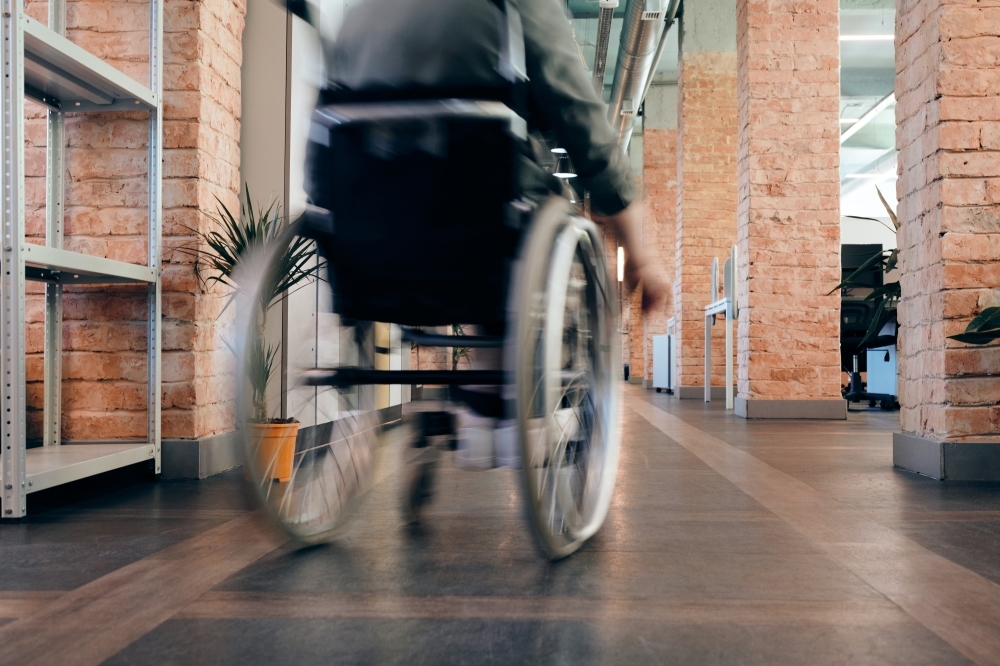Accessible, equitable world for persons with disabilities
The International Day of People with Disability (IDPWD), a United Nations-sanctioned day, is commemorated on 3 December every year. This day commemorates, celebrates, and focuses on an underserved community across the globe.The day was created to help people understand that we need to create a world with zero discrimination against persons with disabilities. This day embodies the Leave No One Behind and the UN Sustainable Development Goals (SDGs).
With this year’s theme: Transformative solutions for Inclusive Development: The role of innovation in fuelling an accessible and equitable world, we strive as Organisations of Persons with Disabilities (OPDs), and as a society to advocate for the creation of an equitable world that is inclusive.
As people with disabilities ourselves, under the umbrella body of the National Federation of People with Disabilities in Namibia (NFPDN), OPDs have a great mandate to advocate and promote the human rights issues related to Persons with Disabilities.
We engage and work to improve our quality of life, enhance our dignity, and well-being and empower all persons with different disabilities. As well as promoting the strengthening of the implementation of Namibia’s National Disability Act. As civil society, we advocate for an ‘equitable world’ or put another way, a just and fair world. Let’s be honest, isn’t that what everyone wants and pursues themselves?
It doesn’t sound difficult but for persons with disabilities, it is something we often only dream about.
This year’s theme of IDPWD explores how innovation can create a more accessible world for persons with disabilities. We see innovation and technology changing our lives, and how we work, especially since the pandemic. A major revelation was that you can work from home! Where there is a will there is a way.
Imagine all those countless people with some form of disability being told they cannot work because of accessibility challenges for example. During the Covid-19 pandemic, organisations large and small, governmental, and for-profit all suddenly managed to put policies, procedures, and technology in place that meant their people could work remotely. Mostly using technology and innovations such as Microsoft Teams, Zoom, and speech and recognition software that made working remotely safe, secure, and simple.
Making things possible
Innovation has made the improbable possible. It’s never been impossible to make a workspace and generally society more equitable and accessible. It has just always been very improbable. There was never the desire to make it happen.
As pressure groups, we have and will continue to put pressure on the public and private sectors to work on leveraging innovation and technology to make Namibian society more equitable and accessible. We will continue to do so with the continued help, support, and partnership of GIZ (Deutsche Gesellschaft für Internationale Zusammenarbeit), the United Nations, the private sector, as well as likeminded individuals who would like to see an equitable Namibia in their lifetime.
Reflecting on this year’s theme for IDPWD, it becomes clear that in our fast-paced and hi-tech world, there are many ways in which innovation can unlock accessibility and create a more equitable world.
• Innovation for disability-inclusive development in employment speaks to SDG-8 which focuses on decent work and economic growth: where the link between employment, knowledge, and skills required to access employment in an innovative, rapidly changing technological landscape to all and how assistive technologies can increase accessibility to employment and be mainstreamed in the workplace.
• Innovation for disability-inclusive development in reducing inequality as SDG-10 states: how can implementation of innovations, practical tools, and good practices reduce inequalities in both public and private sectors, which are disability-inclusive and interested in promoting diversity in the workplace.
Keeping people out of the workforce because they may have some physical challenge in one area is madness. In Namibia, where we need to grow the economy, and everyone should do their part in this, it also makes no economic sense.
Sadly, for some reason, it is the norm, rather than the exception. We are working and engaging with stakeholders to see how innovation and transformative solutions are a catalyst for inclusion for persons with disabilities and can lead to a more equitable world. Or at least a more equitable Land of the Brave.
*Ebenhard Ripunda is the Chairperson of the Namibia Association of Wheelchair Users (NAWCU)
** Opinion pieces and letters by the public do not necessarily reflect the opinion of the editorial team. The editors reserve the right to abridge original texts. All newspapers of Namibia Media Holdings adhere to the Code of Ethics for Namibian Media, a code established jointly with the Media Ombudsman.



